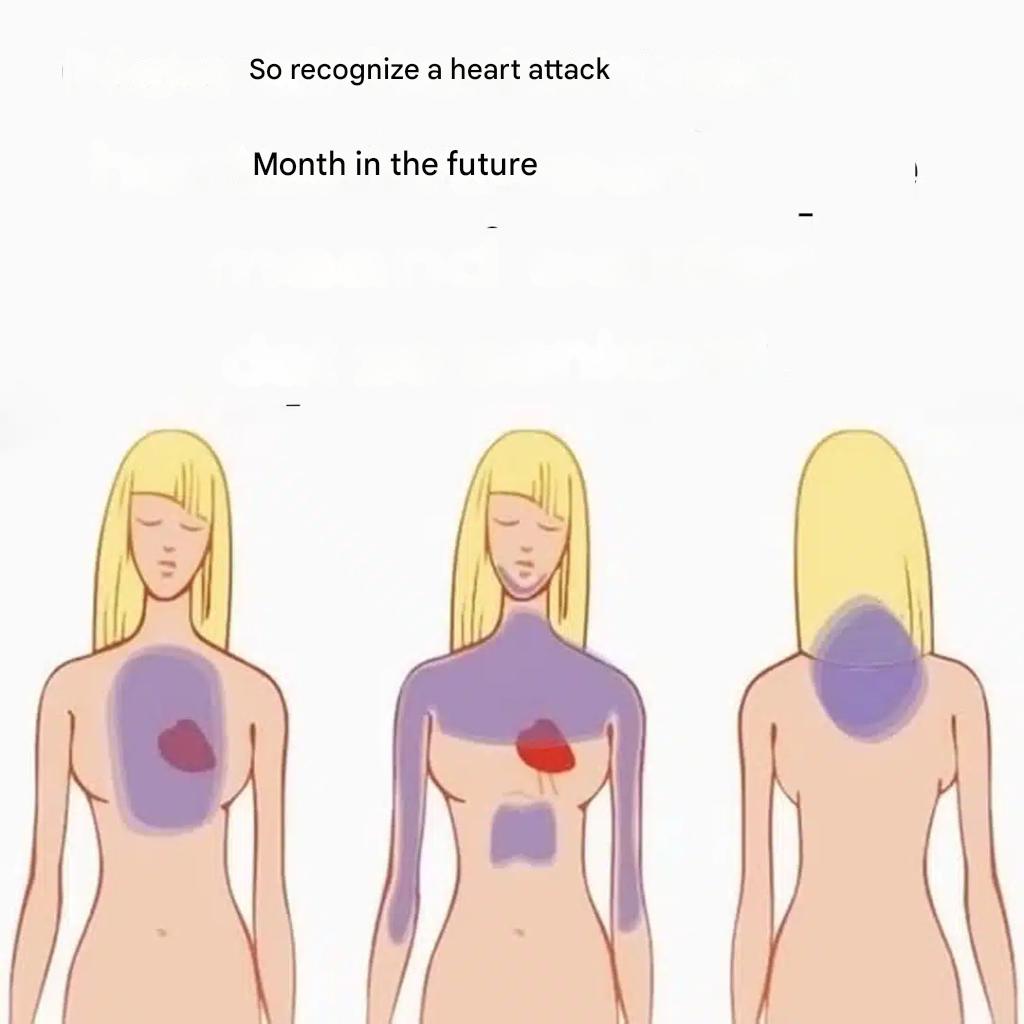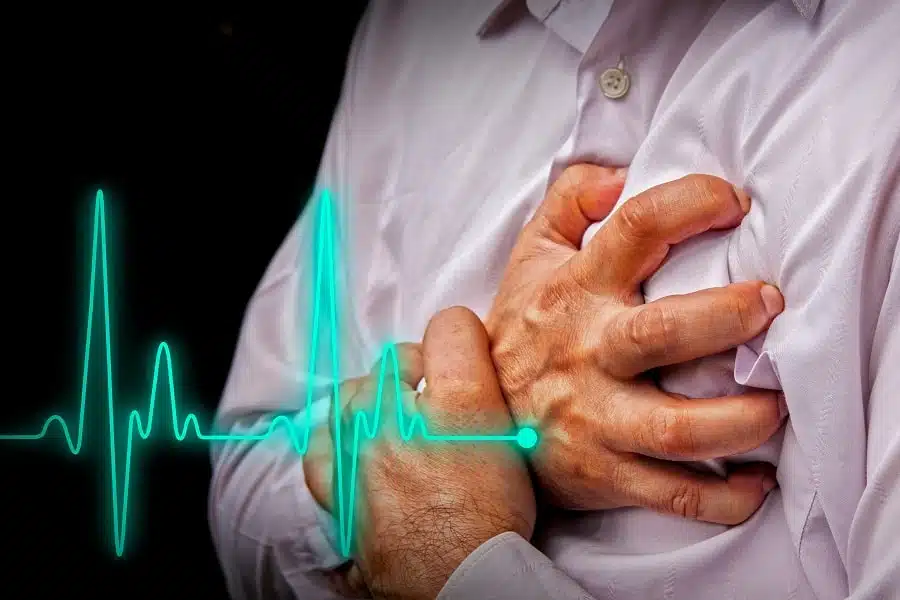
How to recognize a heart attack weeks before it occurs
- Due to poor circulation, the brain does not receive the necessary oxygen, which leads to sudden dizziness and cold sweats. If you notice these symptoms for no apparent reason, don’t ignore them. Contact a healthcare provider quickly.
Pressure or pain in the chest

This is probably the most well-known, but also the most underestimated sign. A heavy or tightness in the chest can indicate an imminent attack. Many people blame stress or fatigue on it, but it’s better to err on the side of caution and see a doctor as soon as possible.
Feeling of weakness
When the arteries narrow, the blood flows less well. You will also feel unusually weak after moderate physical exercise. This lack of strength should be a warning, especially if it is accompanied by other symptoms.
Unexpected flu symptoms
It’s not uncommon for some people to experience flu-like symptoms before they have a heart attack: chills, sweating, and a general malaise. If these symptoms occur without an obvious cause, take them seriously and seek medical attention as soon as possible.
Persistent fatigue

Do you feel exhausted when you wake up, or are you sleepy all day? Poor circulation can lead to this type of chronic fatigue . If you have difficulty recovering even after a good night’s sleep, consult your doctor.
Unexplained shortness of breath
If the lungs are not sufficiently supplied with blood, it becomes difficult to breathe normally. This shortness of breath , even at rest or after light exertion, is a warning sign that should not be ignored .
What to do in case of doubt?
If you notice one or more of these symptoms, don’t take any chances. Also, if you think it’s due to fatigue or a period of stress, consult a doctor. Prevention is the key to avoiding a heart attack.
Maintain a balanced lifestyle:
- Maintain a healthy diet by limiting your intake of saturated fats.
- Exercise regularly to keep your arteries healthy.
- Manage your stress by meditating or doing breathing exercises.
- Keep track of your risk factors, such as cholesterol, blood pressure, and blood sugar.
Cardiovascular health, a priority
Your heart is the engine of your life. Make sure that the symptoms do not go unnoticed because you are careless or afraid of disturbing others. Warning signs are there to warn you, so listen to your body. It is better to seek medical help for nothing than to suffer a heart attack.
Cold sweat and dizziness

